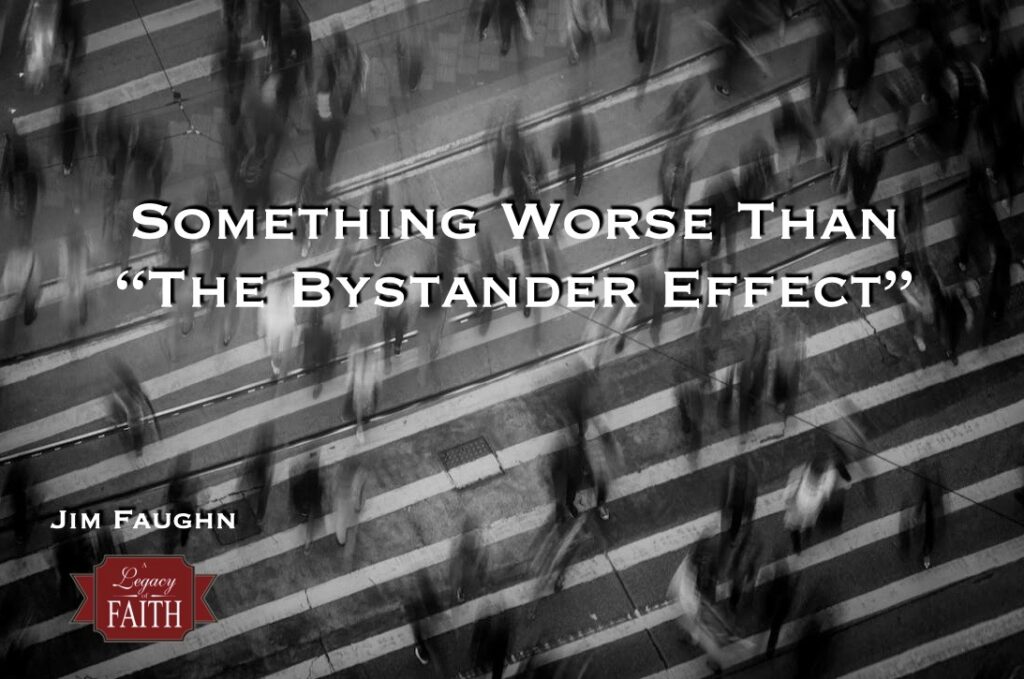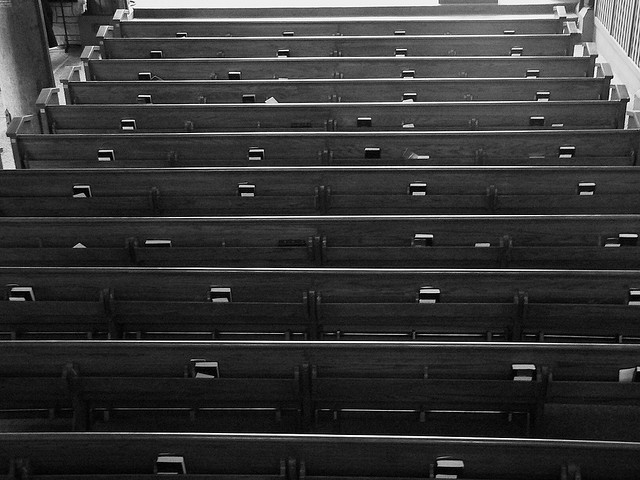Something Worse Than “The Bystander Effect”
I’m not usually in the habit of reproducing material from other sources here, but I’m making an exception this time. Most of what you will read below is from Quora Digest. I will add an application that I thought of as I read their material after I have reproduced what I read.
=====
March 13, 1964. 3 a.m
Catherine’s friends called her Kitty.
She was young, just twenty-eight, and petite. Tiny really.
And on this particular night, she was screaming for her life, as loudly as she could. After all, there were people all around. Someone would have to hear her.
Right?
Her shouts went on for thirty minutes, as her killer sliced her, mutilating her body.
38 neighbors heard her scream.
38.
How many tried to help her? How many called the police?
None.
Why?
“I thought someone else would do it.”
April 28, 2010. 5:30 a.m.
Hugo Alfredo Tale-Yax, a homeless man in Queens, New York, threw himself into action as he saw another man trying to mug a woman.
He was stabbed several times and collapsed, lying on the sidewalk.
His wounds were bad, but they shouldn’t have been lethal.
He laid there for an hour before bleeding to death.
Video footage showed 20 people pass his body.
20
One rolled his body over and just walked away. Another snapped a photo of him bleeding out but couldn’t be bothered to call an ambulance.
When help finally arrived, Hugo was dead.
Why did no one stop to help?
“I thought someone else would do it.”
What are the most deadly, most horrible words?
“I thought someone else would do it.”
The bystander-effect is this idea that we assume someone else will react, that they’ll do something, so we walk on, literally to the point of ignoring murder.
It’s a cycle too: we don’t react and we assume because others are calm too that nothing was ever wrong in the first place.
“I thought someone else would do it.”
That string of words is responsible for more losses, more deaths, than we can possibly imagine.
=====
There is absolutely no doubt about the seriousness of the material reproduced above. The loss of anybody’s life due, in part, to what is called “the bystander effect” is very tragic.
Could there be anything worse? I’m thinking that the answer to that question is a resounding, “Yes.”
I invite you to think with me about our Lord’s “Great Commission.” You can read His words as recorded in Matthew 28:18-20, Mark 16:15-16, and Luke 24:46-47. It is evident that He wanted (and wants) the gospel proclaimed universally.
I’m also asking you to think with me about how Jesus described the final judgment in Matthew 25:31-46. It is quite clear that He wants the hungry to be fed, thirst of individuals to be quenched, strangers to be welcomed, the naked to be clothed, the sick to be visited, and those who are incarcerated to not be forgotten.
I do not want to be guilty either in the “court of public opinion” or in the eyes of Jesus for being so callous as to let another person die while I merely observed or passed by without offering some sort of assistance.
At the same time, I definitely do not want my own soul to be in jeopardy because I know what the will of Jesus is, but I fail to act.
I don’t think that the final judge will appreciate it if my only answer to Him is —
I thought someone else would do it.
AUTHOR: Jim Faughn



